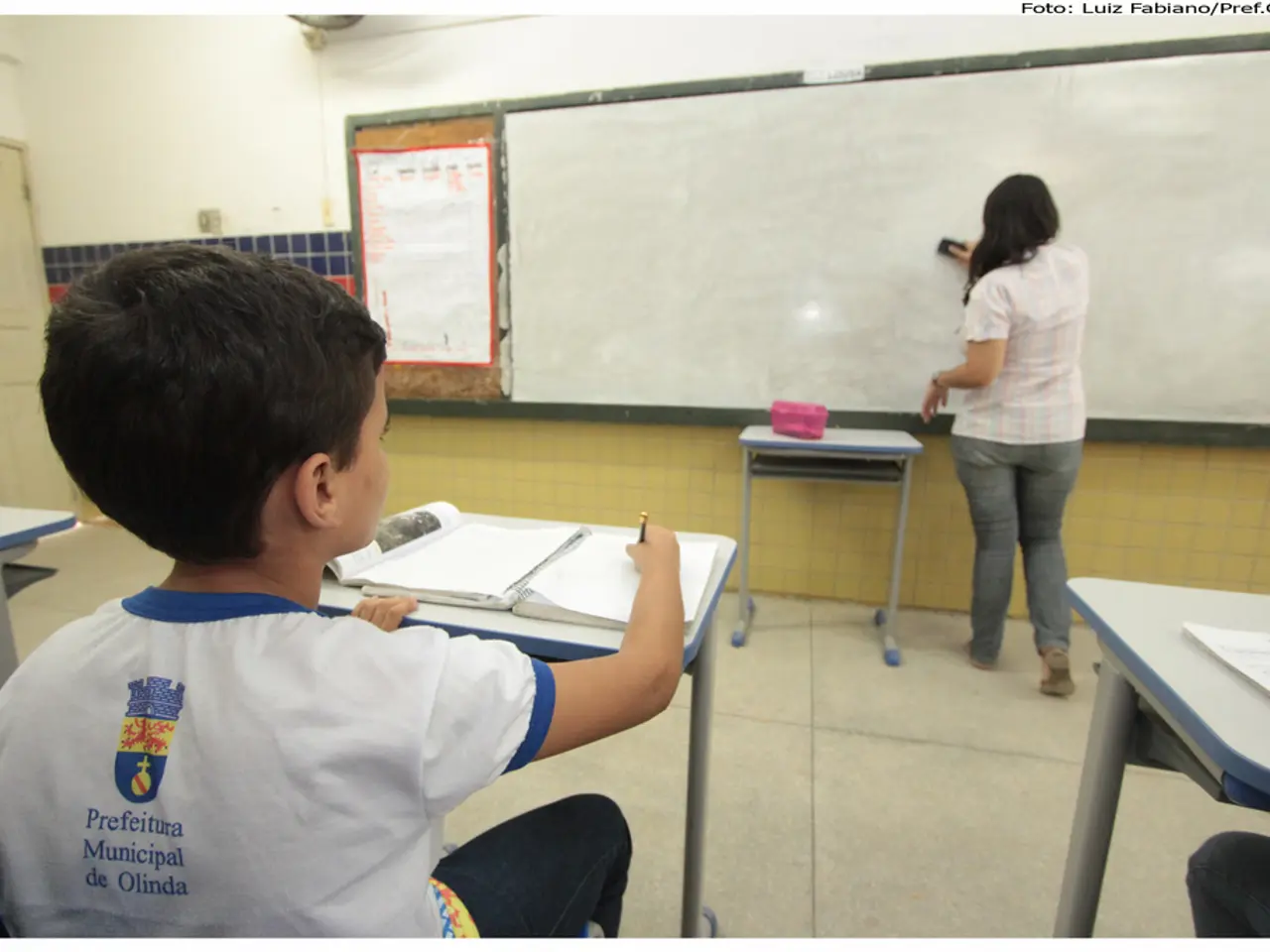Unveiled: The escalating 'grade inflation' issue leading to the prohibition of fresh student enrollments in selected UAE educational institutions
In a bid to combat grade inflation and ensure academic integrity, schools in Abu Dhabi, particularly in the United Arab Emirates (UAE), are implementing stringent measures. The Abu Dhabi Department of Education and Knowledge (ADEK) has launched a comprehensive review, targeting grade inflation and inconsistencies in academic records among private schools in the emirate.
The review process is robust, involving temporary enrollment bans for 12 private schools while they address compliance issues related to grade inflation. These schools are required to submit extensive academic records for all Grade 12 students, including high school transcripts, grading policies, graduation requirement documentation, samples of marked assessments, and records of all types of pupil assessment.
Schools must resolve issues and submit the required documentation before they can resume enrollment in the affected grades. Failure to comply may lead to further administrative actions or mandatory corrective measures. The initial focus is on Grades 11 and 12, with subsequent phases set to extend the analysis to include younger grades such as Grades 9 to 11, and comparisons between internal grades and external exam performances.
The initiative aims to ensure that student grades are a genuine reflection of academic performance, protecting the integrity of student qualifications, maintaining trust in the education system, preventing inflated school rankings, and creating an equitable academic environment across the emirate. ADEK has highlighted that grade inflation distorts true student learning outcomes, erodes confidence in educational credentials, and undermines fair academic competition.
Schools in the UAE are also implementing quality assurance and fairness in their assessment practices. For instance, the Global Indian International School (GIIS) Dubai uses data-driven approaches, such as moderation sessions and data review meetings, to refine prediction accuracy and maintain accountability. GIIS Dubai also follows the practice of setting a common paper for all GIIS schools across different countries to ensure fair practices and prevent grade inflation.
Teachers at GIIS Dubai attend Cambridge examiner training to gain insights into external assessment expectations. The school encourages teachers to participate in training organised by reputed boards and holds internal training sessions to align assessments with the British Curriculum and Cambridge International standards.
Hampton Heights International School has implemented a multi-layered internal system to detect discrepancies and support staff in maintaining grading integrity, tracking discrepancies between predicted grades and actual student performance on standardised or external exams. The school uses data triangulation with external benchmarks to identify learning gaps for skills and competences.
The commitment to compliance and transparency is evident, with cross-campus audits being conducted at Hampton Heights International School to ensure consistency and adherence to external benchmarks. GIIS Dubai holds webinars for parents before assessments to inform them of the format/blueprint and improve their understanding.
Concerns about the credibility of course grades are not new, and grade inflation has been on the rise, even among elite institutions like the Ivy League and Oxford and Cambridge in the UK. Schools in the UAE are working diligently to address this issue, aiming to align predicted grades with actual student outcomes in external assessments such as NGRT, Progress Tests, and international benchmark exams. The ultimate goal is to ensure that all credentials are earned through genuine achievement and to reinforce parents' and stakeholders' trust in the quality of education provided.
- Schools in the UAE, such as the Global Indian International School (GIIS) Dubai and Hampton Heights International School, are focusing on enhancing their assessment practices to maintain fairness and combat grade inflation.
- To ensure academic integrity in the education system, the Abu Dhabi Department of Education and Knowledge (ADEK) has initiated a comprehensive review, covering private schools across different grades.
- In the bid to battle grade inflation, schools in Abu Dhabi are implementing quality assurance measures, including data-driven approaches, moderation sessions, and internal training sessions.
- Teachers at schools like GIIS Dubai participate in Cambridge examiner training and attend sessions organized by reputed boards to align their assessments with external benchmarks and standards.
- The initiatives aimed at combating grade inflation also include measures to maintain the credibility of course grades, such as cross-campus audits and webinars for parents at schools like Hampton Heights International School.





